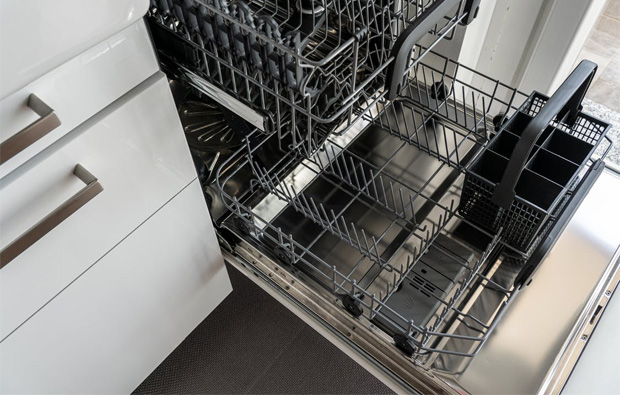Smart Appliance Usage 101 for New Homeowners

Smart Appliance Usage 101 for New Homeowners
Moving into a new home is an exciting milestone, and with it comes the responsibility of managing appliances efficiently. Learning how to optimize appliance usage can save energy, reduce costs, and extend the lifespan of your devices. This Smart Appliance Usage Guide provides essential tips for new homeowners to make the most of their appliances while addressing common issues and highlighting energy-saving opportunities.
Maximize Refrigerator Efficiency
Your refrigerator is one of the most energy-intensive appliances in your home, running 24/7 to preserve food. Proper maintenance is key to keeping it functioning efficiently.
One common frustration among homeowners is a refrigerator water or ice dispenser that stops working. According to Consumer Reports, 17% of refrigerator-related complaints stem from dispensers that fail to produce water or ice. To avoid this issue, regularly clean the water filter and ensure the dispenser’s lines are not clogged or frozen. If problems persist, consult your user manual or a professional technician.
Save Energy with Your Water Heater
Water heaters are another major energy consumer in your home. Switching to an energy-efficient model can lead to significant savings.
According to Bob Vila, Energy Star-certified water heaters can cut annual energy consumption by up to 50%, making them an excellent investment for new homeowners. To maximize efficiency, set your water heater’s temperature to 120°F, insulate the pipes, and schedule routine maintenance to check for sediment build-up that can reduce heating efficiency.

Tackle Toilet Leaks and Water Usage
Toilets are often overlooked when it comes to appliance maintenance, but their impact on water consumption is substantial. They are responsible for a significant portion of household water use, and unnoticed leaks can be wasteful.
According to studies, 20% of all toilets leak, and toilets account for over 30% of a household’s total water use. New homeowners should routinely inspect toilets for leaks by placing a few drops of food colouring in the tank and checking if it seeps into the bowl without flushing. Installing a water-efficient toilet or a dual-flush model can further reduce water consumption.
Be Proactive with Dishwasher Maintenance
Dishwashers are a modern convenience that saves time and water compared to hand washing, but they need regular upkeep to perform at their best.
To keep your dishwasher running efficiently, clean the filter monthly to prevent food debris from clogging the system. Use Energy Star-rated detergent and run full loads to minimize water and energy use. If your dishwasher has a heated drying option, consider air-drying to cut down on energy consumption.

Use Smart Features to Your Advantage
Many modern appliances come equipped with smart technology that can help you optimize their usage. These features not only improve convenience but also contribute to energy savings.
For example, smart thermostats in HVAC systems learn your temperature preferences and adjust automatically, reducing unnecessary energy use. Similarly, washing machines with smart scheduling allow you to run loads during off-peak hours when energy rates are lower. Smart refrigerators also offer notifications for maintenance needs or improper door closures, further enhancing efficiency.
Tips for Long-Term Appliance Care
- Read the Manuals: Appliance manuals contain valuable information about proper use, maintenance, and troubleshooting. Familiarize yourself with these guides to avoid common mistakes that can lead to malfunctions.
- Schedule Routine Maintenance: Professional inspections for appliances like HVAC systems and water heaters ensure they remain in top condition.
- Invest in Energy-Efficient Models: Whenever possible, replace older appliances with Energy Star-rated alternatives to lower utility bills and reduce environmental impact.
By understanding how to use and maintain your appliances, new homeowners can save money, conserve energy, and prevent common issues. Whether it’s addressing refrigerator dispenser problems, upgrading to energy-efficient water heaters, or detecting toilet leaks early, these small efforts go a long way. As you settle into your new home, make smart appliance management a priority to enjoy a comfortable and cost-effective living space. Taking the time to understand your appliances not only ensures their longevity but also improves your home’s overall efficiency and functionality.
Guest Article.




